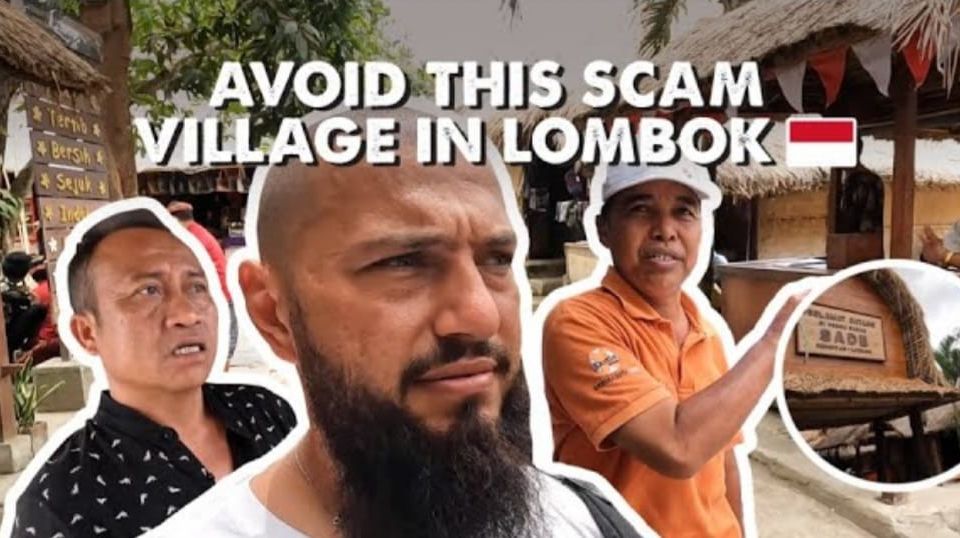A clip from an Azerbaijan-born travel influencer accusing handicraft sellers at a village in Lombok of scamming tourists sparked strong reactions online. Tourism and Creative Economy Minister Sandiaga Uno addressed the controversy by pointing to the language barrier as the source of the problem.
In other words: English proficiency in the tourism sector needs to be improved.
Self-described digital creator Davud Akhundzada recently posted videos describing his negative experience while visiting Sade Village in Central Lombok. He has restricted comments on his social media accounts after his content prompted backlash from Indonesian netizens.
In one particular video, Akhundzada was shown buying handicrafts such as woven fabric and bracelets from sellers in the village while expressing his suspicion that they were out to rip off tourists like him.
In some of the clips, Akhundzada labeled Sade as a ”scam village” and therefore would not recommend it to anyone as he himself has no intention of returning.
While the practice of bargaining for goods is common in tourist hotspots, Akhundzada maintained his position in a follow-up post following the backlash.
“Some people are so patriotic to claim it is completely normal to rip off tourists under the cultural village concept,” he wrote in a caption to a video.
“But do not come to me with a ridiculous amount and ask me to bargain. In the end, they are selling it more expensive than it is supposed to be even if you bargain because you feel good about bringing the prices 2-3 times down.”
Akhundzada also posted a video on Oct. 6 on YouTube documenting his visit to another village in Lombok. The video depicts him uncomfortably evading locals who were pestering him for more cash after he had bought some snacks from them.
“I always loved supporting local businesses and families in the small villages. But sometimes it is not great idea to show your cash around many people because then things might get out of control like in this video,” Akhundzada wrote in the caption of the video.
To his credit, in this video that was uploaded on Oct. 14, Akhundzada said he still prefers Lombok to Bali (ahem, ahem), highlighting the beautiful nature spots of the West Nusa Tenggara (NTB) island.
Speaking to reporters about the controversy in his weekly briefing yesterday in Jakarta, Tourism Minister Sandiaga Uno highlighted the need to improve locals’ English proficiency to avoid tarnishing tourists’ Lombok experience.
“We will conduct dissemination, education, and training on English proficiency. Because the misperception from Davud was due to the two parties not communicating well and smoothly,” Sandiaga said.
In addition, Sandiaga also said that prices of tourist goods in Lombok should be standardized to avoid similar problems.
Separately, Sade Village Tourism Awareness Group Head Sanah said she regrets the controversy but denied that the villagers scammed Akhundzada. Sanah conceded that the lack of manpower was the reason behind the whole misunderstanding.
“People in Sade village are traditional people. Our education level [is mostly] elementary school, and only a few reached high school level,” Sanah said.
“With all the limitations, we cannot communicate well. Especially to face travelers like Mr. Davud who intentionally bombard locals with questions.”
Sanah expressed her hope for better education programs from the central government to improve the quality of tourism in the village.
Central Lombok’s minimum wage is currently IDR2.2 million (US$141).




